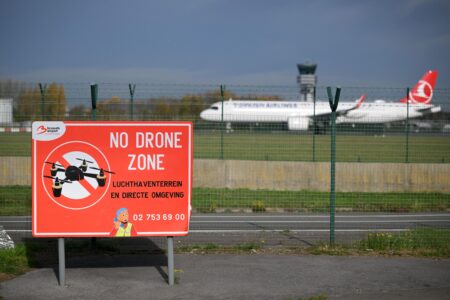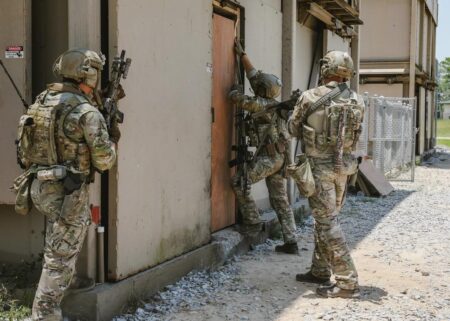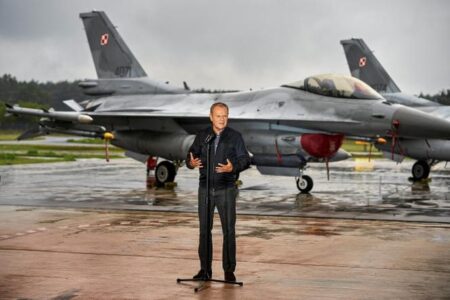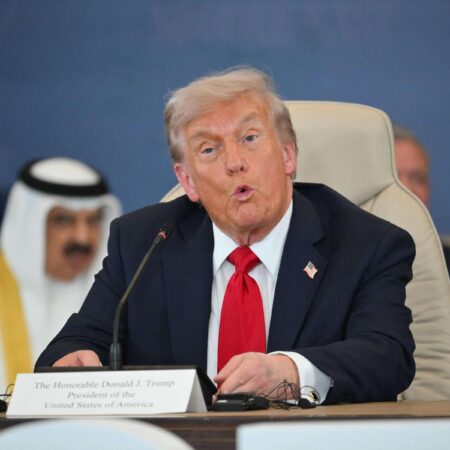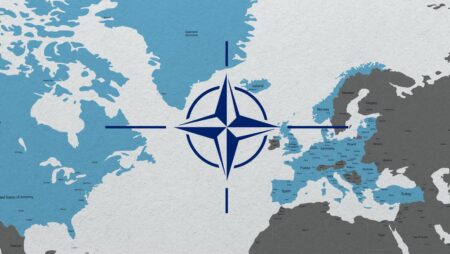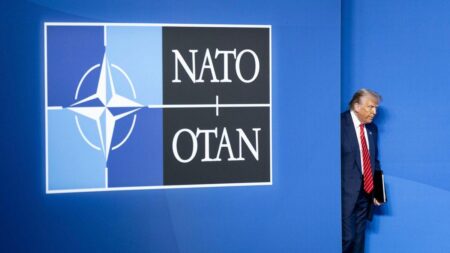The German military has withdrawn its team from Greenland amid rising tensions over Arctic security, highlighting the escalating geopolitical rivalries heating up the region, according to reports from EUAD:BATS on Seeking Alpha
Browsing: defense strategy
France and Germany have joined forces in a groundbreaking European troop deployment to Greenland, strengthening Arctic security amid rising geopolitical tensions. This collaborative mission highlights Europe’s growing commitment to safeguarding this crucial and strategic frontier
Germany’s military is boldly confronting a recruitment challenge as it adapts to growing security demands. In response to shifting geopolitical tensions, the Bundeswehr is launching vibrant new campaigns designed to attract fresh talent, signaling a powerful transformation in the nation’s defense approach
If war broke out tomorrow, Britain’s ability to sustain the fight would depend heavily on its military resources, reserves, and supply chains. Experts say current capabilities could support operations for several months but caution that maintaining long-term endurance would pose serious challenges
Greece is deploying tanks to France for dynamic joint military exercises aimed at strengthening NATO’s eastern defenses and enhancing collaboration among allied forces amid rising regional tensions
France has officially revived military service, injecting fresh energy into a policy once considered outdated. This bold initiative aims to strengthen national security amid evolving global challenges, marking a significant shift in the country’s defense strategy
U.S. and South American defense leaders united to confront urgent regional security challenges, showcasing the strength of collaboration against transnational threats and strengthening partnerships to enhance stability across the Americas, according to SOUTHCOM
The US has deployed strategic bombers near China’s borders, delivering a striking display of military strength amid rising regional tensions. This daring action underscores Washington’s steadfast commitment to preserving stability throughout the Asia-Pacific
Germany has launched an ambitious new military service plan aimed at significantly increasing troop numbers amid rising security concerns. This bold strategy seeks to strengthen the Bundeswehr by expanding conscription and intensifying recruitment efforts
Britain, France, and Germany have teamed up by sending specialized anti-drone units to Belgium, tackling rising security threats head-on. This bold strategy aims to boost airspace defenses and expertly neutralize the growing drone menace throughout the region
Hegseth highlights that US Forces Japan stands ready to launch the next phase of its strategic reorganization, aimed squarely at countering China’s growing influence. This bold realignment is set to enhance readiness and strengthen regional security amid rising tensions
India has surged ahead of China in the latest World Air Force Rankings, reports Newsweek. Fueled by advanced modernization and an expanding fleet, India’s air power is ascending to unprecedented levels, marking a significant shift in regional supremacy
Polish Defense Minister fiercely condemned the recent Russian drone incursion as “tactically stupid and counterproductive,” cautioning that it dangerously heightens tensions and puts regional security at serious risk, according to The Guardian
Former President Trump has teased the idea of sending Ukraine powerful Tomahawk missiles as the conflict intensifies. This bold suggestion has ignited fierce debate among experts, leaving many to question whether it’s a genuine plan or a strategic bluff in the complex arena of international politics
Canada has unveiled the Defence Investment Agency, a bold move to accelerate and streamline military procurement. This initiative is set to enhance operational readiness and strengthen the nation’s defense capabilities amid escalating global challenges
Chinese weapons dramatically altered the course of the recent conflict between neighboring countries. With cutting-edge technology and expertly managed supply routes, the battlefield was transformed, intensifying the war and sparking urgent concerns about regional security
Germany’s recent weapon freeze has sparked a vibrant debate: is it just a symbolic political gesture, or does it signal a significant change in policy? Experts at the Stimson Center delve into the implications for global security and the future of arms control
Germany is ramping up its drone defense efforts amid escalating tensions with Russia. This bold strategy aims to strengthen national security by tackling new aerial threats head-on in a rapidly evolving geopolitical landscape
NATO faces urgent pressure to accelerate innovation as Russia’s expanding drone arsenal brings new and escalating security threats. Experts stress that rapid adaptation is crucial to maintaining a strategic advantage
NATO has dramatically boosted its defenses following the downing of Russian drones over Poland. This decisive move aims to reinforce regional security amid escalating tensions between Russia and NATO member nations, officials reveal










